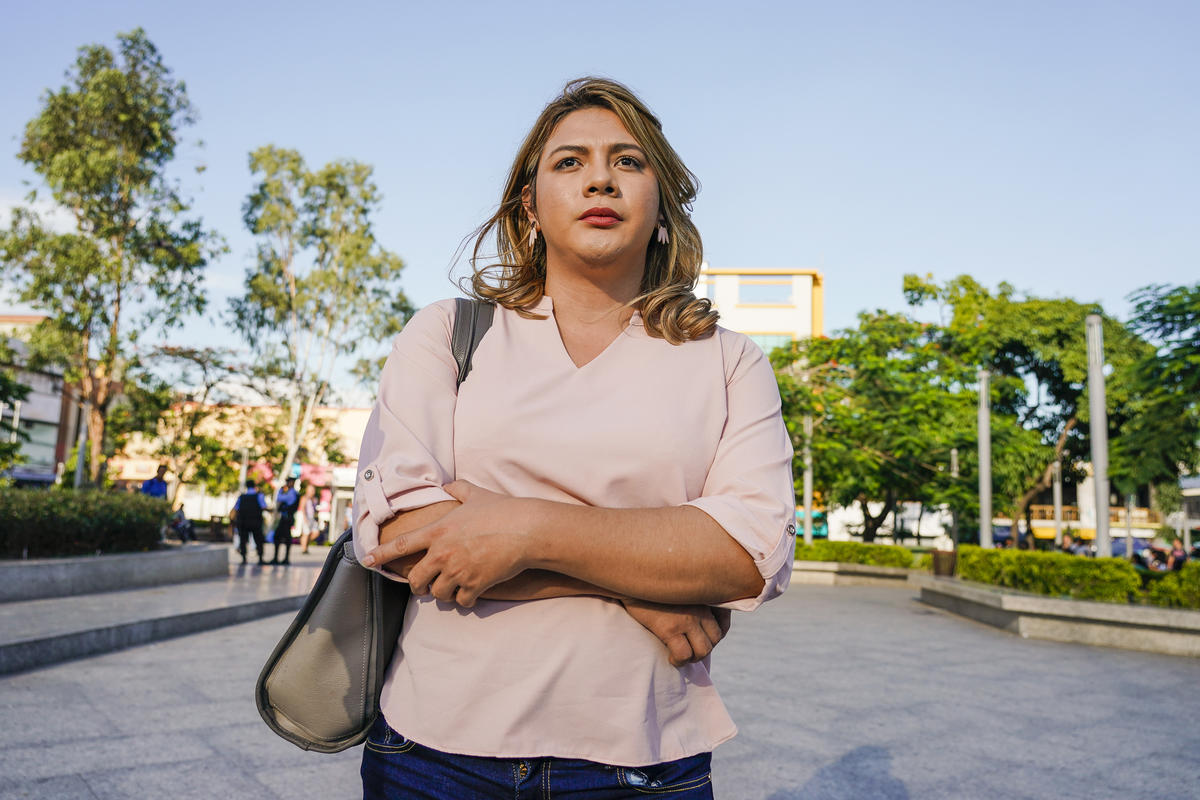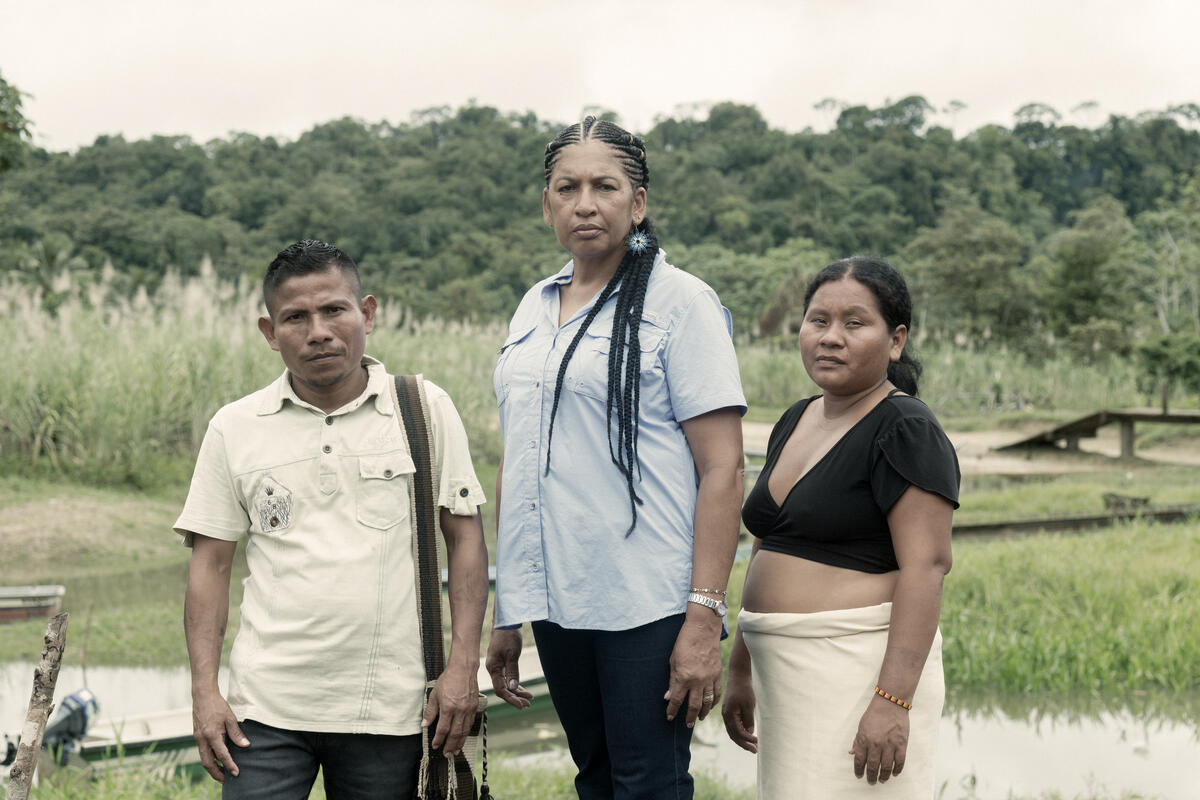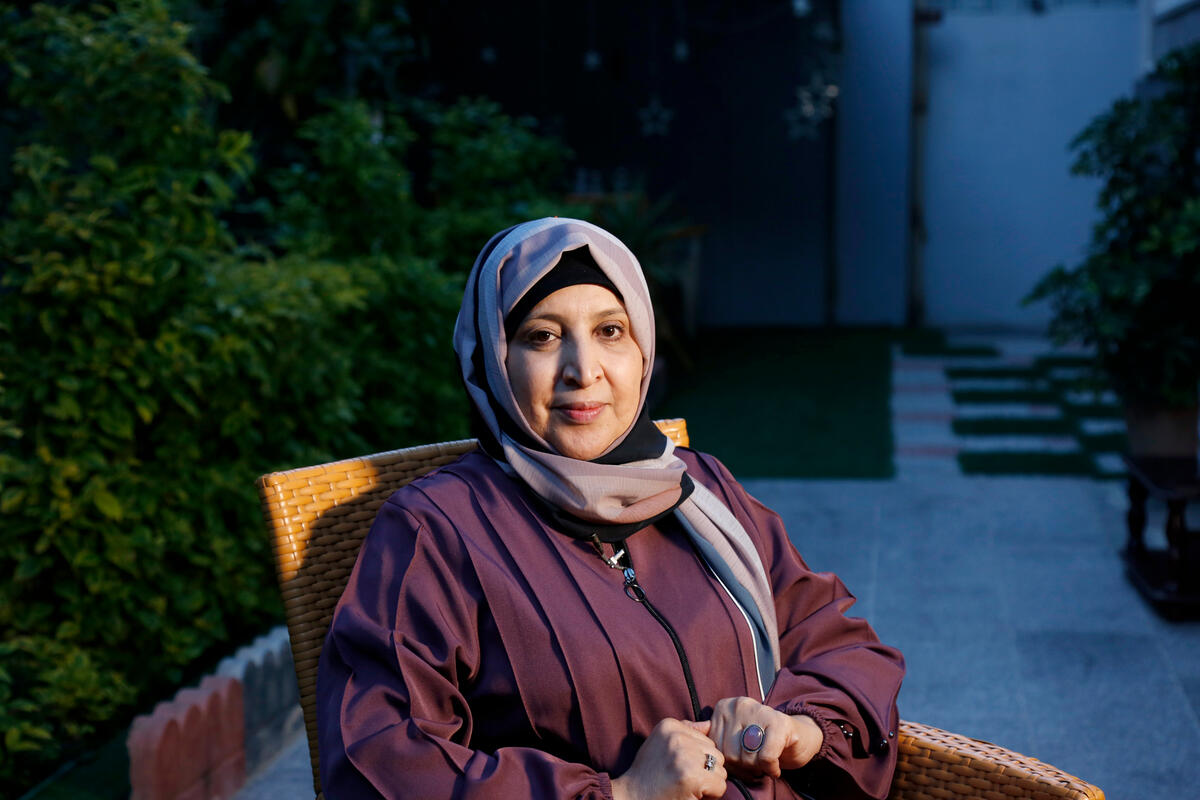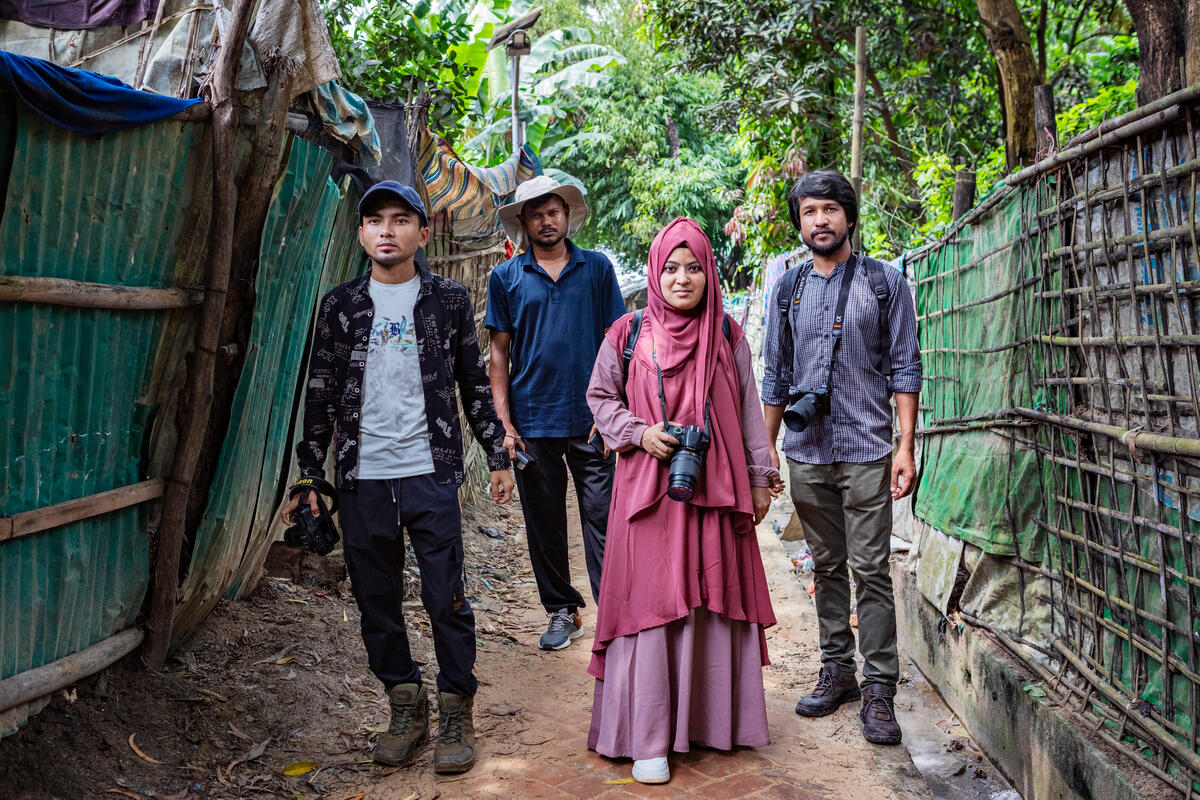Trans woman defies danger to champion LGBTI rights in El Salvador
Trans woman defies danger to champion LGBTI rights in El Salvador
Bianka Rodríguez was leaving a San Salvador shopping centre when a man with a gun came up and forced her into his car. He proceeded to drive aimlessly around the city, rattling off a list of places she frequented to make it clear that he had been stalking her. He rifled through her purse, sniffed her hair and threatened to kill her.
The man eventually released Rodriguez unharmed, but the incident was a terrifying reminder of the risks she faces as a transgender woman in her native El Salvador.
“I was sure I was about to become one more statistic – yet another murdered trans woman,” said Rodriguez, now 26, who serves as president and executive director of a San Salvador-based NGO called Comcavis Trans. For her courageous work on behalf of El Salvador’s LGBTI and trans communities, Rodriguez has been chosen as the regional winner for the Americas of the UNHCR Nansen Refugee Award, a prestigious annual prize that honours those who have gone to extraordinary lengths to support forcibly displaced and stateless people.
“In El Salvador, we trans people get harassed, beaten, extorted, and killed,” said Venus Nolasco, a 40-year-old trans woman who was attending a recent workshop sponsored by Comcavis. “Bianka is one of us, so she understands everything we’re up against. She’s extremely brave, and I really admire her.”
“I was sure I was about to become one more statistic – yet another murdered trans woman.”
With some of the highest indicators of violent crimes in the world, El Salvador is particularly dangerous for LGBTI people, and trans people face the highest risk. At least 14 trans people are thought to have been killed in El Salvador last year alone, with an overwhelmed criminal justice system not being able to respond.
Often, trans people have no choice but to flee their homes and communities, driven out by violent street gangs that control large swaths of territory. In the first six months of 2019, Comcavis recorded 44 cases of trans people who were displaced internally due to targeted violence, even as an unknown number of others have sought asylum abroad.
In addition to the threat of violence, El Salvador’s trans community also faces discrimination and often-insurmountable obstacles to securing housing, health care, education, and employment. This lack of opportunities tends to funnel them into sex work.
“We live in a situation in which society at large discriminates against us and the state discriminates against us,” said Rodriguez. “The only option left is to try to survive in a country that denies us our rights.”
Rodriguez had faced many similar hurdles. She was abused by her trans-phobic mother, she says, and forced to drop out of college due to discrimination and bullying. Since the board of Comcavis asked her to take over the presidency, she has become the public face of this most marginalized of communities.
Founded in 2008, Comcavis Trans has made major strides in bringing visibility and dignity to the trans community, knitting support networks and plying the country to help teach trans men and women across El Salvador about their rights. The organization also lobbies for legislation to protect the LGBTI community and advocates for trans people in prison. But their efforts have come with a stiff price.
Comcavis’ founder and former president, Karla Avelar, was forced to flee the country and seek asylum in Europe in the wake of threats against her and her family. The threats were just the latest in a series of hardships that had seen Avelar, a former sex worker, incarcerated, repeatedly raped, and shot nine times. But the threats against her and her family were the last straw, and she was forced to seek asylum, which was granted in Europe.
The decision to step into Avelar’s shoes was an agonizing one, said Rodriguez. She tried to talk the board out of it, insisting she was not up to the challenge, and cried herself to sleep as she wrestled with the choice.
In the end, she accepted, largely, she said, to ensure that the organization that had helped her through hard times remained available to other transgender men and women.
“We live in a situation in which society at large discriminates against us."
“I wanted to throw in the towel, but I know that those who seek us out desperately need our help,” she said, speaking over the chorus of barking neighbourhood dogs and screeching parrots that echoed through the backyard of the spartan home she shares with her aunt.
Born in San Salvador in 1993, Rodriguez recalls being around five years old when she first understood she was a girl trapped in a boy’s body. Her father, an architect by training whose own brother was gay, recognized and respected her gender identity. But he died when she was just six years old, and Rodriguez says her mother beat her for looking and acting too feminine and locked her in her room. Rodriguez left home and subsequently went to live with her maternal grandmother, who had come to terms with her gender identity.
With her grandma’s support, she was able to finish high school and start a college degree in agro-industrial engineering. But the harassment of her peers and targeted abuse by a professor who she says told her she represented “an offense against his principles” forced her to put her dreams of graduating college on hold. Once again, she dropped out and began looking for a job. But because of the discrepancy between her looks – she had grown her hair long and wore makeup and women’s clothing – and the male name on her ID, she got only a litany of rejections.
She finally sought out Comcavis, and then-president Avelar, perhaps sensing Rodriguez' innate leadership potential, asked her to join the organization as the communications manager. Just a few years later, Rodriguez would take over as the organization’s president and executive director after Avelar’s departure.
The Nansen Refugee Award is named in honour of Norwegian explorer and humanitarian Fridtjof Nansen, the first High Commissioner for Refugees, who was appointed by the League of Nations in 1921 and won the Nobel Peace Prize in 1922 for his humanitarian work. The Award aims to showcase Nansen’s values of perseverance and commitment in the face of adversity.
The overall winner of the award will be announced on 2 October and it will be presented by UNHCR, the UN Refugee Agency, at a ceremony in Geneva, Switzerland on the 7 October.
“I don’t see this honour as for me, specifically,” said Rodriguez. “I see it as a recognition of the trans community in El Salvador and all the trans people who come to us for help.”
You can read about the other regional winners of the UNHCR Nansen Refugee Award here.














